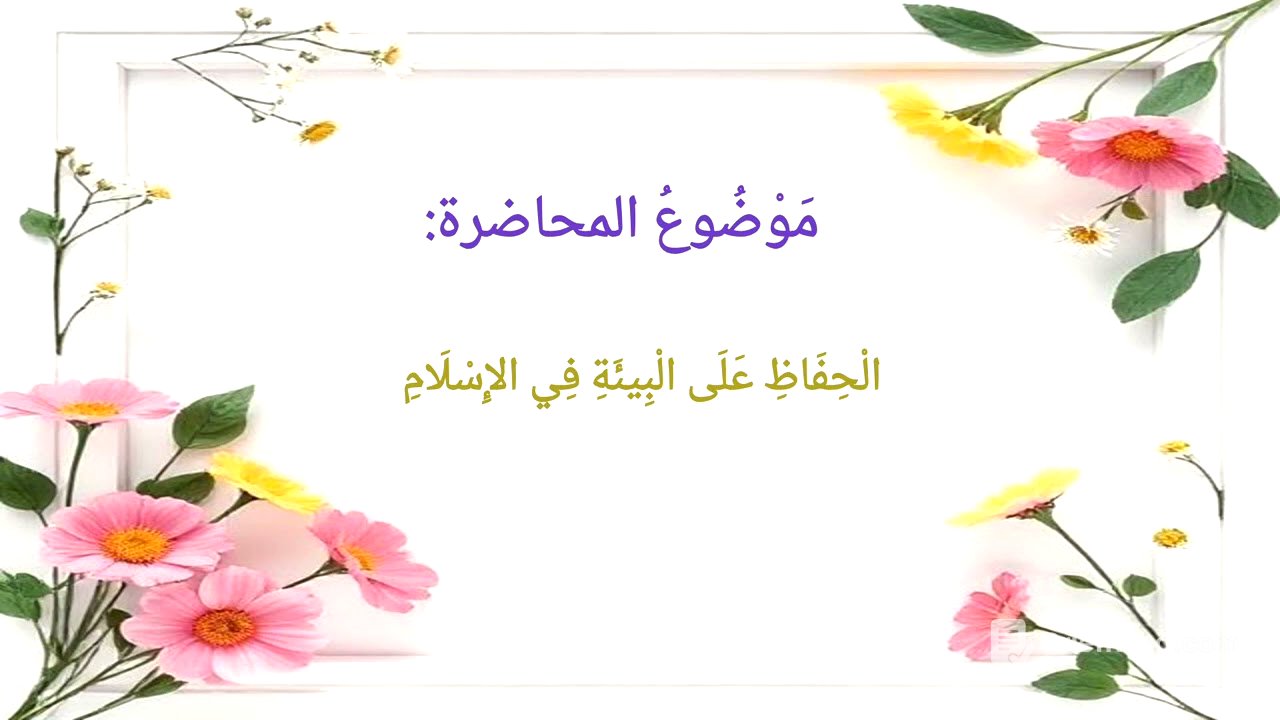TLDR;
This video discusses the importance of environmental preservation in Islam, highlighting its connection to Islamic law and teachings. It covers various aspects, including the prohibition of corruption on Earth, the emphasis on cleanliness, the preservation of water, the care for plants and trees, and kindness to animals. The video also addresses man's responsibility towards the environment through good stewardship, moderation in resource use, and avoiding harmful actions. It concludes by outlining the positive effects of environmental preservation and practical ways to contribute, emphasizing that it is a religious duty aligned with Islamic principles.
- Islam forbids corruption on Earth and urges cleanliness.
- Preserving water, caring for plants, and showing kindness to animals are encouraged.
- Man is a steward of the Earth, responsible for its well-being.
- Environmental preservation aligns with Islamic law and benefits humanity.
Introduction [0:00]
The video introduces the topic of protecting the environment in Islam, emphasizing its importance and close connection to the objectives of Islamic law and its teachings. It states that Allah created the universe perfectly and made man a vicegerent on Earth to improve it, not to cause corruption.
Prohibition of Corruption on Earth [1:18]
Islam forbids all forms of corruption on Earth, as highlighted in the Quran. It references specific verses that prohibit causing corruption and emphasize that corruption on land and sea is a consequence of people's actions. This prohibition is a fundamental aspect of Islam's concern for the environment.
Command to Purify and Clean [1:43]
Islam strongly encourages cleanliness and purification. The video quotes a verse from the Quran stating that God loves those who repent and purify themselves. Additionally, it includes sayings of the Prophet Muhammad emphasizing the importance of cleanliness and maintaining clean surroundings.
Preserving Water [2:15]
Water is described as the origin of life in Islam, and its preservation is crucial. The Prophet Muhammad forbade the excessive use of water, even during worship, and prohibited polluting water sources. These teachings highlight the importance of conserving and protecting water resources.
Caring for Plants and Trees [2:57]
Islam encourages planting trees and caring for them. The Prophet Muhammad stated that planting a tree or sowing a seed from which a bird, human, or animal eats is considered an act of charity. Cutting down trees without justification, even in war, is forbidden. The video also mentions a hadith where the Prophet encourages planting a seedling even if the Day of Judgment is near.
Kindness to Animals [3:43]
Islam promotes kindness to animals and treating them with compassion. The Prophet Muhammad emphasized that those who do not show mercy will not receive mercy. The video includes stories of a woman who was punished for mistreating a cat and a man who was forgiven for giving water to a thirsty dog, illustrating the importance of animal welfare in Islam.
Man’s Responsibility Towards the Environment [4:07]
Man's responsibility towards the environment in Islam is represented in good stewardship, moderation in the use of resources, and abandoning actions that harm the environment. Man is a steward on Earth, entrusted with its care and responsible to God for this trust. Moderation in consumption and avoiding wastefulness are also emphasized. The Prophet Muhammad's teaching against causing harm reinforces the importance of protecting the environment.
Effects of Preserving the Environment [5:04]
Preserving the environment has significant positive effects, including achieving the objectives of Sharia in preserving life and wealth, contributing to a good life for humanity, achieving environmental balance, preventing diseases resulting from pollution, and providing a suitable environment for future generations.
Practical Means of Preserving the Environment [5:34]
The video outlines practical steps for preserving the environment, such as rationalizing water and energy consumption, paying attention to personal and public hygiene, participating in tree planting campaigns, reducing the use of harmful materials, recycling waste, and raising awareness about the importance of environmental preservation.
Scholars’ Sayings About Preserving the Environment [5:58]
The video includes sayings from Islamic scholars like Imam Al-Shatibi, Al-Izz bin Abd Al-Salam, and Ibn Al-Qayyim, emphasizing that Islamic laws are designed to benefit people in this life and the hereafter. These scholars highlight the importance of considering the interests of individuals and the alignment of Islamic law with overall welfare.
Conclusion [6:25]
The video concludes by reiterating that preserving the environment is a religious and moral duty in Islam. It encourages everyone to be ambassadors for the environment, protecting and preserving it in accordance with the teachings of God and the Prophet Muhammad.









